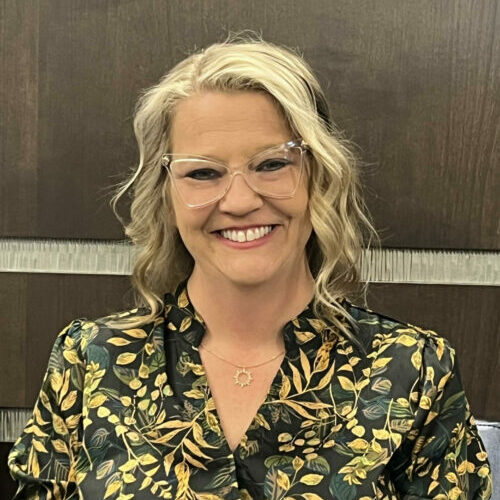Assistant Manager Jessica Horst is also our Financial Coach. While she won’t advise you on specific products or do your taxes for you, she is well-equipped to have a positive, judgment-free conversation about your finances. She can help you get organized, find ways to save money, and set and meet financial goals. Jessica answered a few questions for us.
What does a financial coach do?
-
- Financial coaches are listeners and helpers. We create a space to have an open, empathetic, and non-judging conversation. What I can do is look at your financial habits and goals with you and help you break any cycles you find yourself caught up in. If you are having a hard time saving money or understanding your credit score, I can help you make sense of those things and empower you to move forward.
What is a typical meeting with a financial coach like?
-
- This can be different based on what you need, but we always start with a conversation. What’s going on? What’s happening for you? What goals do you have? We’ll look at your bank statements, your credit report, maybe credit card statements. We’ll look for trends, possibly even contact creditors together. Most importantly though, we will just talk—without judgment. Everyone struggles at some point. My job as financial coach is to help you see where you are, how you got there, and how you can get to the next step.
How much should I be saving?
-
- A common recommendation for people making around $40,000 a year is to have 10% of your income in savings. But this can be difficult. $4,000 can be lot of money to set aside! I always stress that it’s okay to start small. If you can, put aside just $10 from every paycheck. Start with what you can afford and move on from there when you can.
What are some strategies to save more?
-
- I encourage you to track expenses for one month and look: what money do you spend on needs and what do you spend on wants? For example, look at what streaming services you use. Do you watch all of them, or some more than others? Could you bundle them and save on subscription fees that way? Also, try to make as much food at home as you can instead of ordering food from restaurants—that adds up fast (especially delivery services which often upcharge from the normal menu!). Another thing to look into is your phone or internet providers. Prices change all the time, and it might pay off if you give your internet provider a call every year to see what deals they could offer you.
How can I actually stick to a budget?
-
- Keep it simple. Start by figuring out what kind of budget you need: a basic budget, a debt-repayment budget, or a savings goal. This is the kind of thing we can figure out in your first coaching meeting.The other important thing to remember is to make it attainable. Even if you’re on a budget, you still deserve to enjoy yourself. Just like dieting, you can’t take away all the good stuff, or what’s the point? You need to be able to still enjoy your life! Don’t stop eating at restaurants altogether—but maybe cut it down to once a week. Keep your streaming services, but maybe get rid of one that you don’t use as much. Give yourself a budget that you want to keep, and you will do a better job of keeping it.
How can I face my finances without anxiety?
-
- A person’s feelings about money are usually ingrained by the time they are nine years old. Money can be a very emotional and stressful topic. That’s why I do this—to remind our members that they are not alone. We can look at spending habits and, with an open mind, figure out a plan. The more you pay attention, the more routine it becomes, and the easier it gets. With practice and a little work, looking at your bank account doesn’t have to be the scariest thing you do all day.


